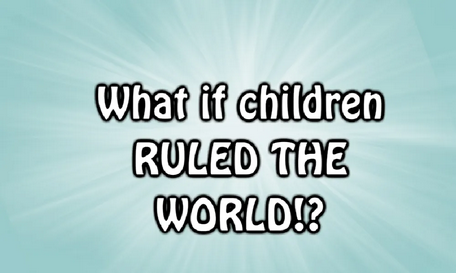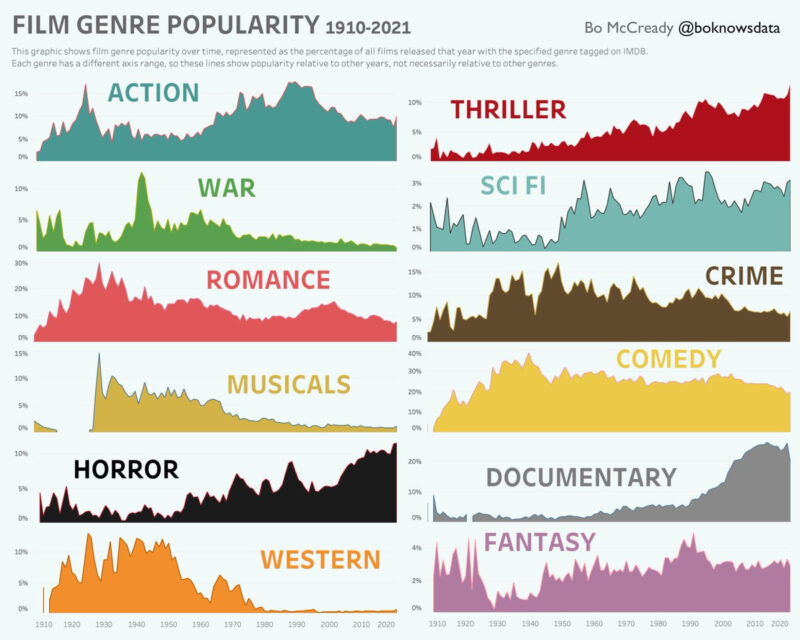Elected officials speak in a language that’s unique to their status group. If you’ve ever tried to attend a city council or school board meeting, you’ve watched them open with the onanistic portion of the thing, handing out certificates and doing grip-and-grins. “Bob, I just want to echo your wonderful comments about this amazing program.” They see themselves first, then others of their class, then they go blind. The first duty of a public official is to take a lot of selfies.
In a crisis, they recite. We’ve all watched them do this. “This is not who we are.” “Let me be clear: Hate has no home here.” You know what they’re going to say before they say it, and you know the tone before you hear it. The current mayor of Los Angeles is very fond of “our message has been very clear” and “we’re going to link arms and stand together”, so you’re not surprised to hear her respond to a question with something like, “Well, Maria, thank you for that great question. Our message has been very clear: We’re going to link arms and stand together.” Listening to elected officials speak is qualitatively different than listening to people speak. They perform the ritual behaviours of their status group.
[…]
They become debilitated by a lifetime of ritual language. If a staffer hasn’t told them to look somber and say “I’m sorry for your loss”, they don’t know how. It isn’t a line they’ve been equipped with for the event. Hey man your kids burned to death I almost lost my Corvette once, man. All kiddin’ aside, man!
[…]
They aren’t people anymore. They can’t talk like people. They don’t have normal human affect. What’s particularly interesting is that this learned inability to read human cues is recent and narrow. Bill Clinton, as much a politician as anyone who has ever lived, had a well-known ability to see people and signal his empathy, or at least to do a brilliant job of faking it. Similarly, Donald Trump is obviously very very fond of Donald Trump, who is amazing, trust me, everybody says so, but he has a normal human ability to spontaneously bullshit with the normals. Elite disconnection isn’t inevitable.
The broken personal thing behind all the broken institutional things is a loss of basic human connection and behavior. It’s a learned disconnection, and they can’t hide it.
Chris Bray, “The Mask Becomes Your Face”, Tell Me How This Ends, 2023-08-22.
November 25, 2023
QotD: Political language mirrors the ritualized nature of political life
November 24, 2023
It sometimes seems that the only thing that isn’t “violence” these days is actual violence
David Sedaris at The Free Press:

“Gen Z” by EpicTop10.com is licensed under CC BY 2.0
Words, we are now regularly reminded, are violence. So too is silence. I read not long ago that capitalism is violence, as is misgendering someone. Ignoring someone is violence, but so too is paying them attention. A friend recently called on one of her assistants to deliver a statistic during a business meeting and was later charged with “casual violence”. Apparently Deborah needed to give advance warning that she was going to ask a question, one that might possibly put her employee — someone who was well paid to know stuff and be able to spew it forth — on the spot.
Who are these hothouse flowers, all so easily and consistently wounded? People whose parents never hit them, that’s who. People who don’t know what real pain is, but still want to throw the word around. When I was a child, a slap across the face was too minor to qualify as “casual violence”. It was simply what you got for talking back or holding everyone up. It never hurt all that much; what stung was the swiftness of it, the surprise. Who knew my mother could move so fast, like someone belted in the martial arts. I don’t feel like it traumatized me to be knocked around a little. Blood was rarely drawn. No limbs were broken. Could my parents have made their point without resorting to violence? Probably, but it would have taken more time, and with six kids to dress and get out the door that was a precious commodity. I see parents now who worry they’re being abusive if they don’t spend at least an hour putting their child to bed. An hour! I said to my sister, Amy, “Do you remember ever once being tucked in? Can you imagine Mom and Dad reading to us, or singing? Can you imagine them kissing us?”
“Ugh,” she said. “Stop!”
And look at us! We’re fine. We can handle stuff. We never get offended by anything.
Our parents thought we were okay, at best, and I think that really helped us in the long run. Ask someone now if they have kids, and they’re pretty much guaranteed to use the word amazing, as in “I have an amazing six-year-old daughter.”
“Amazing because she just discovered a cure for herpes or because she speaks three words of Spanish,” I always want to ask. “I mean, just how low have you set that bar?”
One of the worst things that’s happened to us as a country is that people are having fewer children — 1.8 as opposed to five 50 years ago. Sure, it’s good for the environment — fewer people means less demand for resources. The problem is that single children receive a freakish amount of love and attention. Most graduate at least twelve times before leaving high school. Their every move is recorded and celebrated, and it gives them an outsize sense of their own importance.
The solution isn’t for every couple to start having five kids again, but maybe for one chosen couple to have five, and the other four couples to go without — either have a full litter you can’t pay that much attention to, or nothing at all.
If our schools are a mess it’s in large part due to these parents who think their kids are special, who get mad if you contradict their brilliance, if you give them a bad grade or, God forbid, try to take their phones away. Had one of my teachers told my mother that I was acting up in class, she’d have said, “Thank you so much for letting me know.” Then she’d have come to wherever I was — in front of the TV, or at the side of the TV making my way to the front of it — and slapped my sister Gretchen so hard her eyes would have crossed.
“What was that for?” Gretchen would have asked.
“Oops, wrong kid,” my mother would have said. Then she’d have slapped me twice as hard to make up for her mistake.
November 23, 2023
November 20, 2023
The Fact-Checkers found the phrase “kill switch” isn’t in the bill, “proving” it false
Jon Miltimore has yet another example of “fact-checkers” carrying water for politicians to obscure actual facts when they’re politically inconvenient:
In November 2021, former US Representative from Georgia Bob Barr wrote a little-noticed political column claiming that buried inside President Joe Biden’s $1 trillion bipartisan infrastructure legislation was a dangerous provision that would go into effect in five years.
“Marketed to Congress as a benign tool to help prevent drunk driving, the measure will mandate that automobile manufacturers build into every car what amounts to a ‘vehicle kill switch'”, wrote Barr, who was the Libertarian Party’s nominee for president in 2008.
Like most Americans, I had never heard of this alleged “kill switch” until a few days ago when Representative Thomas Massie, a libertarian-leaning Republican, proposed to strip the mandate’s funding.
“The right to travel is fundamental, but the government has mandated a kill-switch in new vehicles sold after 2026,” said Massie. “The kill-switch will monitor driver performance and disable cars based on the information gathered.”
Nineteen Republicans joined all but one Democrat in opposing Massie’s amendment, which failed.
True or False?
The claim that the feds would mandate that every new motor vehicle include technology that could disable the vehicle seemed ludicrous. So I started Googling.
To my relief, I saw several fact-checkers at legacy institutions had determined the “kill switch” mandate was not true.
“Our rating: False,” said USA Today.
“ASSESSMENT: False,” said the Associated Press.
“We rate it Mostly False,” concluded PolitiFact.
(Snopes, a reliably left-leaning fact check group, was a little less conclusive, saying the claim was a “mixture” of true and false.)
Unfortunately, my relief evaporated once I looked at the bill itself.
Sec. 24220 of the law explicitly states: “[T]o ensure the prevention of alcohol-impaired driving fatalities, advanced drunk and impaired driving prevention technology must be standard equipment in all new passenger motor vehicles.”
The legislation then goes on to define the technology as a computer system that can “passively monitor the performance of a driver of a motor vehicle” and can “prevent or limit motor vehicle operation if an impairment is detected” (emphasis added).
How the system will make this determination is unclear, as is the government’s potential role in apprehending suspected drunk drivers (more on that later).
But the law’s language could not be more clear: New motor vehicles must have a computer system to “monitor” drivers, and the system must be able to prevent vehicle operation if it detects impairment.
“[W]hen low status people express the truth, it sometimes becomes high status to lie”
Rob Henderson explains some of the reasons smart people can believe dumb ideas:
Many have discovered an argument hack. They don’t need to argue that something is false. They just need to show that it’s associated with low status. The converse is also true: You don’t need to argue that something is true. You just need to show that it’s associated with high status. And when low status people express the truth, it sometimes becomes high status to lie.
In the 1980s, the psychologists Richard E. Petty and John T. Cacioppo developed the “Elaboration Likelihood Model” to describe how persuasion works. “Elaboration” here means the extent to which a person carefully thinks about the information. When people’s motivation and ability to engage in careful thinking is present, the “elaboration likelihood” is high. This means people are likely to pay attention to the relevant information and draw conclusions based on the merits of the arguments or the message. When elaboration likelihood is high, a person is willing to expend their cognitive resources to update their views.
Two paths to persuasion
The idea is that there are two paths, or two “routes”, to persuading others. The first type, termed the “central” route, comes from careful and thoughtful consideration of the messages we hear. When the central route is engaged, we actively evaluate the information presented, and try to discern whether or not it’s true.
When the “peripheral” route is engaged, we pay more attention to cues apart from the actual information or content or the message. For example, we might evaluate someone’s argument based on how attractive they are or where they were educated, without considering the actual merits of their message.
When we accept a message through the peripheral route, we tend to be more passive than when we accept a message through the central route. Unfortunately, the peripheral route is more prevalent because we are exposed to an increasingly large amount of information.
The renowned psychologists Susan Fiske and Shelley Taylor have characterized humans as “cognitive misers”. They write, “People are limited in their capacity to process information, so they take shortcuts whenever they can”.
We are lazy creatures who try to expend as little mental energy as possible.
And people are typically less motivated to scrutinize a message if the source is considered to be an expert. We interpret the message through the peripheral route.
This is one reason why media outlets often appoint experts who mirror their political values. These experts lend credibility to the views the outlet espouses. Interestingly, though, expertise appears to influence persuasion only if the individual is identified as an expert before they communicate their message. Research has found that when a person is told the source is an expert after listening to the message, this new information does not increase the person’s likelihood of believing the message.
It works the other way, too. If a person is told that a source is not an expert before the message, the person tends to be more skeptical of the message. If told the source is not an expert after the message, this has no effect on a person’s likelihood of believing the message.
This suggests that knowing a source is an expert reduces our motivation to engage in central processing. We let our guards down.
As motivation and/or ability to process arguments is decreased, peripheral cues become more important for persuasion. Which might not bode well.
However, when we update our beliefs by weighing the actual merits of an argument (central route), our updated beliefs tend to endure and are more robust against counter-persuasion, compared to when we update our beliefs through peripheral processing. If we come to believe something through careful and thoughtful consideration, that belief is more resilient to change.
This means we can be more easily manipulated through the peripheral route. If we are convinced of something via the peripheral route, a manipulator will be more successful at using the peripheral route once again to alter our initial belief.
November 19, 2023
Ted Gioia wonders if we need a “new Romanticism”
He raised the question earlier this year, and it’s sticking with him to the point he’s gathering notes on the original Romantic movement and what it was reacting against:
I realized that, the more I looked at what happened circa 1800, the more it reminded me of our current malaise.
- Rationalist and algorithmic models were dominating every sphere of life at that midpoint in the Industrial Revolution — and people started resisting the forces of progress.
- Companies grew more powerful, promising productivity and prosperity. But Blake called them “dark Satanic mills” and Luddites started burning down factories — a drastic and futile step, almost the equivalent of throwing away your smartphone.
- Even as science and technology produced amazing results, dysfunctional behaviors sprang up everywhere. The pathbreaking literary works from the late 1700s reveal the dark side of the pervasive techno-optimism — Goethe’s novel about Werther’s suicide [Wiki], the Marquis de Sade’s nasty stories [Wiki], and all those gloomy Gothic novels [Wiki]. What happened to the Enlightenment?
- As the new century dawned, the creative class (as we would call it today) increasingly attacked rationalist currents that had somehow morphed into violent, intrusive forces in their lives — an 180 degree shift in the culture. For Blake and others, the name Newton became a term of abuse.
- Artists, especially poets and musicians, took the lead in this revolt. They celebrated human feeling and emotional attachments — embracing them as more trustworthy, more flexible, more desirable than technology, profits, and cold calculation.
That’s the world, circa 1800.
The new paradigm shocked Europe when it started to spread. Cultural elites had just assumed that science and reason would control everything in the future. But that wasn’t how it played out.
Resemblances with the current moment are not hard to see.
“Imagine a growing sense that algorithmic and mechanistic thinking has become too oppressive. Imagine if people started resisting technology. Imagine a revolt against STEM’s dominance. Imagine people deciding that the good life starts with NOT learning how to code.”
These considerations led me, about nine months ago, to conduct a deep dive into the history of the Romanticist movement. I wanted to see what the historical evidence told me.
I’ve devoted hours every day to this — reading stacks of books, both primary and secondary sources, on the subject. I’ve supplemented it with a music listening program and a study of visual art from the era.
What’s my goal? I’m still not entirely sure.
November 18, 2023
Believe all women … unless they’re Israeli
In The Line, Kristin Raworth and Ariella Kimmel protest against the objectively pro-Hamas silence of so many feminist organizations about the terror attacks of October 7th:
On October 7th, 2023, Hamas terrorists infiltrated Israel and committed the worst massacre of Jews in a single day since the Holocaust. More than just a massacre, Hamas tortured their victims, including brutally raping women, young and old. Yet the silence of many women’s organizations and leading voices who stand tall, claiming to be “strong feminists”, is deafening.
When the #MeToo movement started, the mantra was “believe all women”. As high-profile women spoke out, the feminist movement stood with them. So why, in the wake of the most horrific terrorist attack in Israel’s history, which included rape, do these women not deserve the same solidarity?
A month later it is not just the complete silence of the women’s organizations that causes pain, it is the active justification and gaslighting of the Jewish community, which has including denying the truth of what happened on October 7th, by demanding proof, rather than believing survivors. Many may recognize these tactics as those used as abusers against their victims in cases of domestic and sexual violence, a tactic that has become known as “DARVO” — Deny, Attack, and Reverse, Victim Offender.
When reports first surfaced of the sexual assaults committed by Hamas, many of us took to Twitter, the only place where we knew to raise our voices. Immediately our replies were filled with folks who otherwise would believe survivors, but were seemingly comfortable demanding immediate forensic evidence in this case. Survivor accounts were not enough; even a video released by the Israeli government that painted a clear picture of Hamas’ brutality was not enough. Hamas terrorists themselves recounting their actions was not enough.
Sarah Jama, an MPP in Ontario, has gone so far to publicly state that the accounts of rape are a lie pushed forward by the “zionist lobby”.
We have seen people like Ghada Sasa, a former board member of Canadians for Justice and Peace in the Middle East, going on a podcast and not just claiming that Hamas treated civilians fairly, but that Israel was to blame for the massacre at the Nova music festival.
Meanwhile member of Parliament Niki Ashton claimed that a “feminist government” would call for a ceasefire; yet she has not once condemned the use of rape by Hamas as a war crime. This is a highly selective read of feminism.
November 17, 2023
Israeli government responds strongly to Justin Trudeau’s accusations of deliberate killings of civilians
I guess the electoral calculus shows that there aren’t enough Jewish votes to be gained by backing Israel, so Justin Trudeau is going for the Islamic vote instead:
It’s not typical that an Israeli leader will issue an English-language excoriation of a friendly government in a time of war, but this week Israeli Prime Minister Benjamin Netanyahu made an exception for Prime Minister Justin Trudeau.
“While Israel is doing everything to keep civilians out of harm’s way, Hamas is doing everything to keep them in harm’s way,” said Netanyahu in a statement addressed to the Canadian leader. He added, “the forces of civilization must back Israel in defeating Hamas barbarism.”
.@JustinTrudeau It is not Israel that is deliberately targeting civilians but Hamas that beheaded, burned and massacred civilians in the worst horrors perpetrated on Jews since the Holocaust.
While Israel is doing everything to keep civilians out of harm’s way, Hamas is doing …
— Benjamin Netanyahu – בנימין נתניהו (@netanyahu) November 15, 2023
Netanyahu was reacting to prepared remarks Trudeau delivered in B.C. where he accused Israel of killing “women, children and babies”. The statement — which did not place any blame on Hamas for the carnage — urged Israel to exercise “maximum restraint” as “the world was watching”.
It’s but the latest incident in an official Trudeau government response to the Israel-Hamas conflict that has been checkered by confusion, contradiction — and a noticeable alienation from Canada’s usual international allies.
In the first days after the Oct. 7 massacres, Canada was left out of a strongly worded joint statement issued by five fellow members of the G7.
“The terrorist actions of Hamas have no justification, no legitimacy and must be universally condemned,” read the statement co-signed by the leaders of the U.S., U.K., Germany, Italy and France. The statement then urged Israel to “set the conditions for a peaceful and integrated Middle East region.”
Ottawa explained that the statement was issued by Quint – an organization of five countries separate from the G7 that has never included Canada.
But while it might make sense for Quint to exclude its other G7 ally, Japan, it’s more conspicuous that the co-signers never called the G7 member with a substantial Jewish population and a lengthy history of diplomatic support for Israel.
And while Trudeau’s official reaction to the Oct. 7 massacres carried much of the same sentiments, it did include a routine equivocation absent from the Quint statement: Israel had a right to defend itself “in accordance with international law”.
November 16, 2023
The US military may need to find a modern-day Patroclus
John Carter explains why the sudden swerve in US military recruitment from all-diverse-all-the-time to an ad that might have been created in the 1960s … and why it still won’t help:
Sing, o muse, of the wrath of Achilles, son of Peleus, that brought countless ills upon the Achaeans …
Thus opens the foundational epic of European civilization.
Achilles is angry because his woman, Briseis, has been appropriated by Agamemnon, the leader of the Greeks. He expresses this discontent by going on strike. While the rest of the Greek army fights and dies outside the walls of Troy, Achilles lounges in his tent, content to sit out the combat until Agamemnon comes to his senses and returns his war bride. If Achilles were simply any other warm body with a spear, this wouldn’t be such a big deal, but he is Achilles – the greatest warrior of the Heroic Age. Without him, the Greeks are at a severe disadvantage. Achilles’ petulance is therefore a problem for Agamemnon.
The lesson is hardly a subtle one. Kings and generals need to keep their soldiers happy. They especially need to keep their best soldiers happy. If they don’t – for instance, by taking their women from them – morale will suffer, and they may well find themselves without the crucial support of their warriors when it most matters.
Washington seems to have missed that lesson, and now, they’re paying the price.
For the last decade they have been relentlessly and mercilessly whipping American whites: defaming them as racists, mocking their intelligence and manliness, tearing down their statues, erasing the names of their ancestral heroes, replacing their fictional archetypes with diverse doppelgangers in the media, disadvantaging them in education and employment, demanding that they attend racial struggle sessions. The list of outrages and humiliations is long and all too familiar, permeating as it does every one of our institutions.
But now, the Empire of Lies faces a problem.
War has returned to the world. History, its rumoured demise notwithstanding, once again stalks the land. Russia mauls the Ukraine; Israel is beset with enemies; the Empire’s influence in Africa frays by the day; China salivates over Taiwan.
Meanwhile the American domestic economy, long since hollowed out by the extractive rent-seeking of financial parasites, lurches from one crisis to the next. The Great Satan remains powerful, for the present, but the young bucks can scent that the silverback is not what he used to be. Their provocations increase in daring and intensity. If they aren’t slapped down, their boldness will only increase.
The criminal regime that has insinuated itself into the halls of American power is running against a clock. They must have a war to cover the slow collapse of their fake economy. They must have a war to prevent rival regimes from displacing their American golem. But their golem is crumbling. Therefore they must have a war sooner rather than later, because with every moment of delay America becomes weaker, while China and Russia become stronger.
Their problem is that no one wants to fight for them.
The core warrior population of America has always been the Scots-Irish of the Appalachian regions, the good ol’ boys of the South, and the farm boys of the Midwest. Hillbillies and rednecks, in other words. Many families from these areas have multi-generational traditions of service. Dad served in Vietnam, Grampa in WWII, Great-Grandpa in the Great War, and Great-Grandpa’s Pappy fought under Lee in the War of Northern Aggression.
These are precisely the white populations that have been singled out for the most unrelenting and vicious racial abuse over the last several decades. They are the one group that it’s okay to defame in the media, depicted as ignorant, bigoted, backwards, and inbred. The people running Hollywood seem to have a special disgust for them. For generations they have born this with a sort of stoic good cheer, accepting their role as the heel in the great kayfabe of American political drama even as they shouldered a disproportionate burden of blood, tears, and sweat in America’s imperial wars.
The events of the last two decades seem to have put an end to that. It wasn’t just the psychotic frenzy of race communism that gripped the regime’s mind, although that certainly played a factor as the military has hardly been immune to it. Who wants to serve in an armed forces that has thrown meritocracy in the trash to make sure the commissioned ranks include as many strong black lesbians as possible, that spends more time making sure the enlisted ranks understand the nuances of pronoun usage and the finer points of critical race theory than training for war? Demoralizing as all that has been, the absolutely pointless debacle of the Neocon Forever War in the Middle East has played at least as large a role.
November 15, 2023
Can we criticize the Climate Goblin now?
Brendan O’Neill asks if it’s allowed to criticized Greta “The Climate Goblin” Thunberg now:
Can we criticise Greta Thunberg now? For a time, anyone who raised even the mildest objection to the pint-sized prophetess of doom risked being damned as a bully. Surely this moratorium on Greta-scepticism will end following her platforming – to use woke lingo – of an activist with very iffy views. An activist who has trivialised the Holocaust and seems pretty chilled about Hamas’s pogrom of 7 October. Calling out Greta for her fact-lite blather about the planet being “on fire” may have been forbidden – pulling her up for hanging out with Holocaust relativists must not be.
Thunberg has made waves by switching her focus from saving the planet to saving Gaza. Like every other Gen Zer with a TikTok and an insatiable urge to signal his / her / zir virtue to the world, she’s become an overnight authority on Israel-Palestine. She posed with a placard saying “Stand with Gaza“. She turned Fridays for Future – where pious rich kids bunk off school to raise awareness about climate change – into “Justice for Palestine” stunts. And on Sunday, she made a climate protest in Amsterdam pretty much all about Palestine.
She invited activists to the stage. One was Sara Rachdan, a Palestinian studying in Amsterdam. It didn’t take German newspaper Bild long to discover that Ms Rachdan holds views which – how should we put this? – are not very pleasant. On Hamas’s pogrom, Ms Rachdan said: “This is finally Palestinians taking action [against] the occupation”. She’s dabbled in Holocaust denigration. She shared a blood-spattered graphic comparing Israel’s actions in Gaza with the Nazis’ actions in Auschwitz. Repulsively, it implies the Jewish State is worse than the Nazis. Where 127 kids a day were killed in Auschwitz, 178 a day are currently dying in Israel’s war in Gaza, it alleges.
Shorter version: the Jews are more accomplished child-killers than even Hitler’s henchmen were. This is rank Holocaust relativism. Comparing the greatest crime in history to this horrendous war denudes that crime of its unique horror. It renders it ordinary. It was no big deal – just the same kind of thing you see on your TV screens every night from Gaza. The implication of moral equivalence between the Nazis’ minutely planned gassing of Jewish children and the deaths of Palestinian kids as a terrible byproduct of Israel’s war on Hamas is beyond immoral. It is the gravest of inversions, treating the Jewish State’s war against anti-Semitic mass murderers as indistinguishable from the Nazis’ acts of anti-Semitic mass murder.
Of course, there’s nothing to suggest Greta shares Ms Rachdan’s views. But isn’t her woke generation obsessed with “platforming”, with only rubbing shoulders with the perfectly politically correct and no one else? Indeed, Thunberg ostentatiously flounced out of the Edinburgh Book Festival earlier this year because it received funding from a firm that invests in fossil fuels. Take oil money and she’ll dodge you like the plague; describe an anti-Semitic pogrom as an act of resistance and she’s all over you like a cheap suit. Care to explain, Greta?
The big brains of Hollywood display “a special kind of stupid”
Ted Gioia met with a group of executives from movie distribution firms outside the North American market back in 2016. It was a good time, financially, but the overall tone of the meeting was anxious because the trend seemed unsustainable:
These were smart people, but they didn’t make the movies. They just ran theater chains. But they didn’t need to be specialists in creativity or storytelling to know that hit films were now built on tired formulas, the same plot lines played out over and over again.
Special effects added some sizzle to the steak, but it was still the same stale meal night after night. Sooner or later, even superheroes die.
Other genres have come and gone — westerns and musicals and other box office draws of the past. Comic book franchises would eventually meet the same fate.
Source: Bo McReady
Back then, Disney was bragging to shareholders that another 20 Marvel films were already in the pipeline. And that was just a start. CEO Bob Iger explained that Disney owned the rights to 7,000 different Marvel characters — implying that brand franchises could propagate forever, like copulating Australian bunnies.
That was the party line in Burbank. But most of the people I spoke to that day privately expressed doubts about this formula-driven strategy. They hoped to enjoy a few more years of boom times, but worried about what would happen next.
“It takes a special kind of stupid to kill off Indiana Jones or Toy Story or a Marvel superhero, but that’s exactly what’s playing out right now in the Magic Kingdom.”
As it turned out, they were right to worry. But a virus, not a superhero, let them down. The first COVID case happened almost exactly three years after my December 2016 talk.
But it now looks like the pandemic merely delayed the creative collapse.
Hollywood has saturated the market with look-alike movies. Their pipeline of films is now exploding like the Nord Stream, but with this difference—studios are still sitting on a huge pile of future bombs.
And what does a studio do with a bomb on its hands?
They have four options—and they are four kinds of ugly
- You delay the film, hoping for a better market environment in the future.
- You send it back for rewriting and more filming
- You cancel it entirely, and write off the investment
- You release it — sinking another $50 million, more or less, into marketing — and then watch it collapse at the box office.
Disney is getting a sour taste of strategy number four this week.
November 14, 2023
The deep cognitive dissonance of “Queers for Palestine”
In Quillette, Armin Navabi points out the utter absurdity of a group of self-identified queers actively supporting the terror organization running the Gaza Strip, which would execute as many of them as came within its power:
Leftists in English-speaking nations tend to see Palestinians (including Hamas) as an oppressed, brown victim class, whose freedom-fighting “resistance” against their oppressive, white, US-backed colonizers in Israel is a righteous cause with which to stand in solidarity. This facile view of the long-standing conflict in the Middle East leads to confused and contradictory thinking, as seen in the incoherent slogan (and now meme) “Queers for Palestine“, emblazoned on banners brandished at anti-Israel rallies.
“Queers for Palestine” attempts to meld LGBT advocacy with Palestinian liberation, a juxtaposition that has precipitated a whirlwind of criticism and ridicule, since LGBT rights scarcely exist within the Muslim world; and the Palestinian territories are no exception. The slogan has been widely satirized. Variations like “Chickens for KFC” and “Blacks for the KKK” highlight its proponents’ basic lack of awareness of just how incompatible the values of the Western left are with those of the Islamic right they so readily champion.
The reality of the situation could not be starker. Though there is room for improvement in Israeli attitudes towards these issues, Israel is at the forefront of LGBT rights in the Middle East. In Israel, LGBT people are visible members of society with legal protections and civil rights, and are accepted by a plurality of its citizens.
Palestine is quite a different story. A 2021 report on LGBT acceptance by UCLA’s Williams Institute rated Israel 44th out of the 175 countries/territories they examined. Palestine came in at number 130, behind Russia, Saudi Arabia, and the Democratic Republic of the Congo. Georgetown University likewise placed Palestine 160th out of 170 countries on their women’s peace and security index, in company with most of the countries in that region. Amnesty International‘s 2020 report on human rights highlights the fact that, in Gaza, male same-sex relationships are punishable by up to 10 years’ imprisonment and points out the conspicuous absence of legal protections against anti-LGBT discrimination and harassment. This lack of civil rights has led hundreds of gay and bisexual Palestinians to flee to Israel to escape persecution. One such refugee, Ahmad Abu Marhia, a 25-year-old gay Palestinian man, was living under asylum in Israel when, in 2022, he was kidnapped and beheaded in the West Bank city of Hebron. His murderers uploaded footage of the killing to social media.
Every time these disparities are mentioned, critics are quick to lob accusations of “pinkwashing” — a concept invented to frame any discussion of Israel’s progressive stance on LGBT issues as a distraction from their mistreatment of Palestinians. But the fact remains that these “Queers for Palestine” could march in Pride parades in Israel if they wanted to. In Palestine, they’d be killed.
Another disconcerting element of “Queers for Palestine” is that the slogan popped up in prominent left-wing anti-Israel/pro-Palestine rallies in the immediate aftermath of Hamas’s terrorist attacks, before Israel had even had the chance to respond. There is no way to interpret this slogan and the surrounding leftist fervor except as a signal of support not merely for Palestine, but specifically for Hamas, a jihadist movement with the explicit aim of eradicating the state of Israel. It’s imperative to understand that Hamas, as detailed in its 1988 Covenant, is propelled by a fundamentalist Islamist ideology whose goal is not only to eliminate all Jews but to conquer the world — just like ISIS. Senior Hamas official Mahmoud al-Zahar has stated on record, “The entire planet will be under our law, there will be no more Jews or Christian traitors”.
Western support for Hamas, under the guise of support for Palestinian liberation, betrays an ignorance of the deep-seated radical Islamist ethos driving that organization, which, if left unchecked, would jeopardize the very freedoms cherished by LGBT people across the developed world. Anyone who doubts this should try being gay, bi, or trans in most of the Middle East and North Africa’s (MENA) Muslim-majority countries. Almost all these nations have laws that criminalize both homosexuality and transsexuality, some of which carry the death penalty. Human Rights Watch’s report “Everyone Wants Me Dead” succinctly encapsulates in its title alone the perilous environment faced by LGBT individuals in these regions.
Australian voters rejected “The Voice”, fearing “they were being sold a pig in a poke”
Theodore Dalrymple on the recent failure of the Austrialian government to install a nebulous and ill-defined advisory body for Australian Aboriginal and Torres Strait Islander representation to Parliament:

Uluru Dialogue co-chair Pat Anderson in an early ad for “The Voice” referendum.
Screen capture from YouTube.
Among my wife’s family papers dating from the Occupation of France are a couple of certificates of aryanité issued to her forebears, that they might continue to be employed and not deported. In Australia, people apply for certificates of aboriginality, in order that they might receive various advantages, subventions, etc.
The former is bad racism, the latter good, at least for those who believe in positive racial discrimination. Unfortunately, it is logically impossible to believe in positive racial discrimination without also believing in the negative kind, irrespective of one’s supposed good intentions.
Australia recently held a referendum on a proposed race-based amendment to the constitution. The amendment proposed something called “The Voice” to be inscribed in the constitution: an advisory body composed of Aborigines who would advise parliament on matters specifically affecting Aborigines. The details of the proposed body — how it was to be chosen or appointed, its purpose, its powers, its duties, its emoluments — were not specified, and those in favour of it, up to and including the Prime Minister, Anthony Albanese, were either unwilling or unable to specify further, relying entirely on the Australian emotional equivalent of Noel Coward’s famous song, “Don’t Let’s Be Beastly to the Germans”. The latter was not much of a policy.
Australian voters, initially favourable to the proposal, rejected it by a large majority, suspecting, rightly in my view, that they were being sold a pig in a poke. They also suspected, I surmise, that what was being proposed was a corrupt and corrupting bureaucratic pork barrel that would reward a small class of Aboriginal Al Sharptons. Far from improving the situation of Australian Aborigines, which is sometimes but not always tragic, the Voice would permanently raise the ideological temperature and prevent measured debate about practical improvements. Benefits would be received without gratitude and, would never, virtually by definition, be sufficient. And of course, the Voice would be the end of the ideal of racial equality. Australia would join the old South Africa in its inscription of race in its constitution.
The abysmal intellectual level of the proponents of the Voice was very well instantiated in an article by Thomas Keneally, the famous Australian novelist, in the Guardian newspaper. It began as follows:
Last Sunday, many in Australia profoundly mourned the loss of the Indigenous voice to parliament referendum, the greatest kindly Amendment ever to be proposed for the Australian constitution, those dreary old articles of association by which our states and territories rub along together in far-flung federation.
I will overlook the use of the word profoundly in this context: I think the words superficially, self-satisfactorily, and exhibitionistically would have been better. But note that, even if the loss were deeply mourned, only the grossest of sentimentalists would claim that such mourning would have any bearing on the rightness or otherwise of the loss that was mourned. Many Nazis and many communists mourned the loss of Nazi Germany and Soviet Russia far more deeply than any Australian mourned the loss of the referendum, but no one, I think, would sympathise with them because of the depth of their sorrow.
November 13, 2023
Lessons for Canada from the Australian referendum on “The Voice”
Conrad Black contrasts the experiences of First Nations in Australia and Canada after contact with European explorers and settlers and the recent attempt to create a formal role for Aboriginal representation in the Australian Parliament.

Uluru Dialogue co-chair Pat Anderson in an early ad for “The Voice” referendum.
Screen capture from YouTube.
Canadians should perhaps pay more attention than we have to the referendum in Australia on Oct. 14 on the subject of the Aboriginal peoples. There are just under one million designated Aboriginals in Australia, slightly below four per cent of Australia’s 25 million people. The roughly corresponding figures in Canada are that Indigenous Canadians, including in both countries a good number of mixed ancestry, are slightly under five per cent — just, at under two million in a population of 40 million. The issue in the referendum was a proposed amendment to the Australian Constitution by which a federal advisory body comprised of native people would be set up which would have only a consultative role. How this body would be selected and its recommendations presented would be dealt with later. The idea was just to give Aboriginal people, in the wording of the referendum, a “voice” in the politics of the country.
The history of the white settlers of Australia and the natives whom they encountered there is fairly parallel to the Canadian experience. Initial contact was friendly enough, but there was a native vulnerability to certain diseases to which the Australian natives had had no occasion to develop an immunity. Their lands were gradually encroached upon although the inconvenience to them was for a time not as great as it was in Canada where the conversion of huge tracts of arable land on the prairies into immensely productive grain producing farms made it steadily more difficult for our native people to maintain that part of their diet based on the buffalo. Australian Aboriginals had less difficulty, at least for some time, retreating to places that did not especially attract the settlers, and where it was comparatively possible to maintain a traditional life.
However, there was soon inevitably interaction, some of it successful intermarriage, and some of it outright racial friction with not infrequent outbursts of violence, though nothing on the scale of the Riel rebellions in this country, let alone the outright warfare of the American Indian Wars. But eventually, reservations were created for some Australian Aboriginals. In contrast to this country, there was practically no attempt to help formally educate them or to assist them in integrating into the larger Australian society. They were gradually pushed to the nether regions of the immense country, almost as large as Canada and with a greater habitable area, and the provision of health and education services to the natives was greatly less generous in the amounts of money and numbers of personnel involved than the corresponding efforts in Canada.
Gradually the theory developed and took hold in Australia that perhaps the early settlers and the autonomous government of Australia created by the British in 1901, could have been more generous and thoughtful. As these matters tend to do, the issue gnawed somewhat at the conscience of white Australia and finally in 2008, the government of Australia passed through both houses of its Parliament an apology and expression of regret for past injustices. There was nothing remotely like the orgy of self-defamatory penitence backed by stupefying amounts of money that has flowed in this country like the Niagara River onto the native people.
Shortly after the new Labor government in Australia was elected in 2022, it proceeded with its declared intention to hold a referendum on the issue of giving the Aboriginal peoples a “voice”. And soon after this campaign began, it became clear that the proposed measure was going to have a rocky ride with the country. The predominant opinion among Australians above the age of 45 was that the native had the opportunity to participate fully in Australian life and that there were some substantial gestures of assistance made to them that the more purposeful native people took up.













